Post
A catch
Save a catch to start your fishing logbook. You will be able to to share it with the community if yo want!
A fishing trip
Post an ad to go fishing with other fishermen
Save a catch to start your fishing logbook. You will be able to to share it with the community if yo want!
Post an ad to go fishing with other fishermen
Share a thought, a question with the community
My favorite cities
×Keep your rods ready for Pinckney in Livingston. The fishing forecast is currently 4.8. The most caught fishes here are the colorado pikeminnow, brown trout, the bronze bream and the atlantic salmon. Come try the most famous fishing techniques like the surf fishing, gathering seafood by hand, support fishing for bass or fishing with traps.
Our fishing forecast of Pinckney indicates the best time to go fishing in this city.
The Colorado pikeminnow
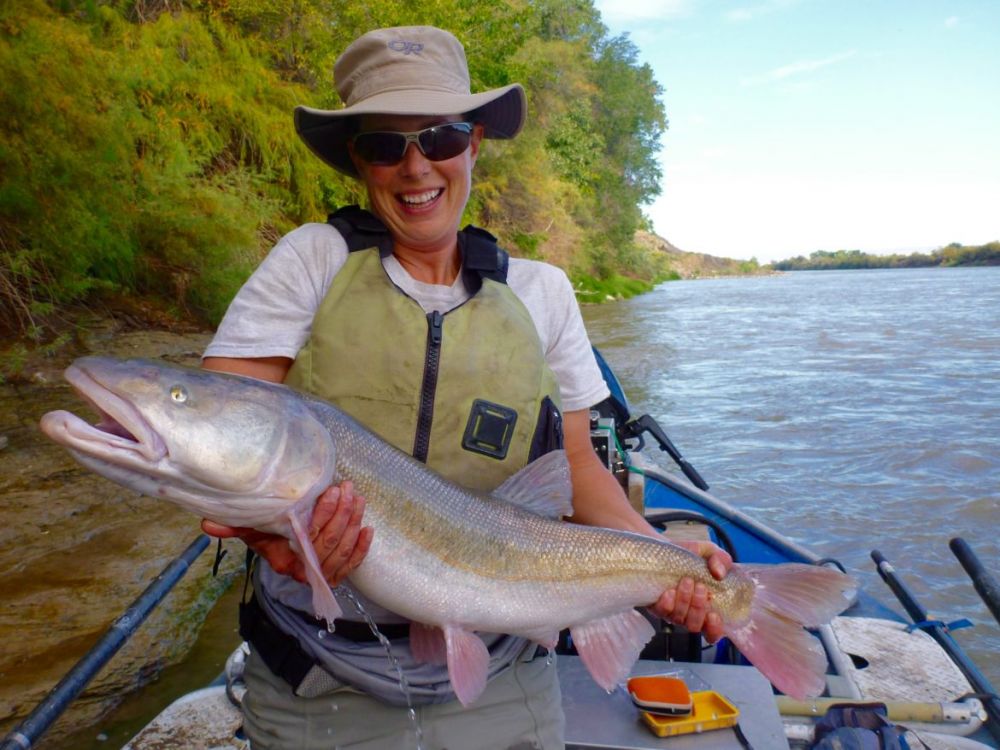
The Colorado Pikeminnow belongs to the Cyprinidae family. The average length of the Colorado pikeminnow is 52.5 cm. The longest Colorado pikeminnow reported is 180 cm. The maximum age recorded for Colorado pikeminnow is 12 years. They spawn from late spring to mid-summer. Fishing is extremely restricted and prohibited because the Colorado Pikeminnow is an endangered species. Like the other three species of pikeminnows, its extended body resembles that of pike. The cone-shaped, slightly flattened head is elongated and forms nearly a quarter of the length of the body. Color levels range from bright olive green on the back to a lighter yellowish shade on the sides, through white. Young fish have a dark mark on the caudal fin. The dorsal and anal fins generally have 9 rays. Pharyngeal teeth are long and hooked.
The Colorado pikeminnow is a famous fish you can catch in Pinckney.Brown Trout
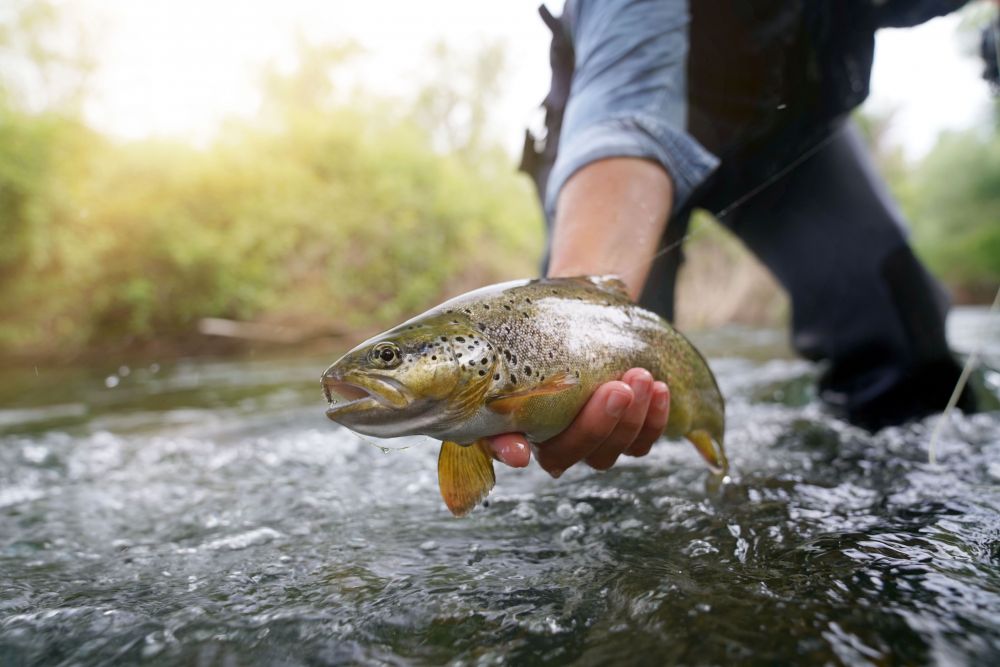
The Brown Trout belongs to the Salmonidae family. According to the location, the adult size varies from 25 cm to 80 cm for 300 to 800 g. It lives for 3 to 6 years. The spawning period starts in October and end in January. The female can lay up to 4000 eggs. The fishing period is open from the second Saturday of March until the third Sunday of September. This fish is not hard to catch but the fishing needs complex skills. Depending on its environment, the brown trout have a very variable color, but the brown trout, as its name shows, is rather brown with scattered black and red spots, depending on the spawners. It has a certain mimicry according to the bottom of its living spaces since the dominant brown will become a green dress if it lives close to the banks where yellow and even sometimes silvery white will mix. It has a "useless" adipose fin between the dorsal fin and the caudal fin. The head is tapered, strong and has a powerful jaw. Its back is a pretty black or night blue.
Brown Trout is a famous fish you can catch in Pinckney.The Bronze Bream
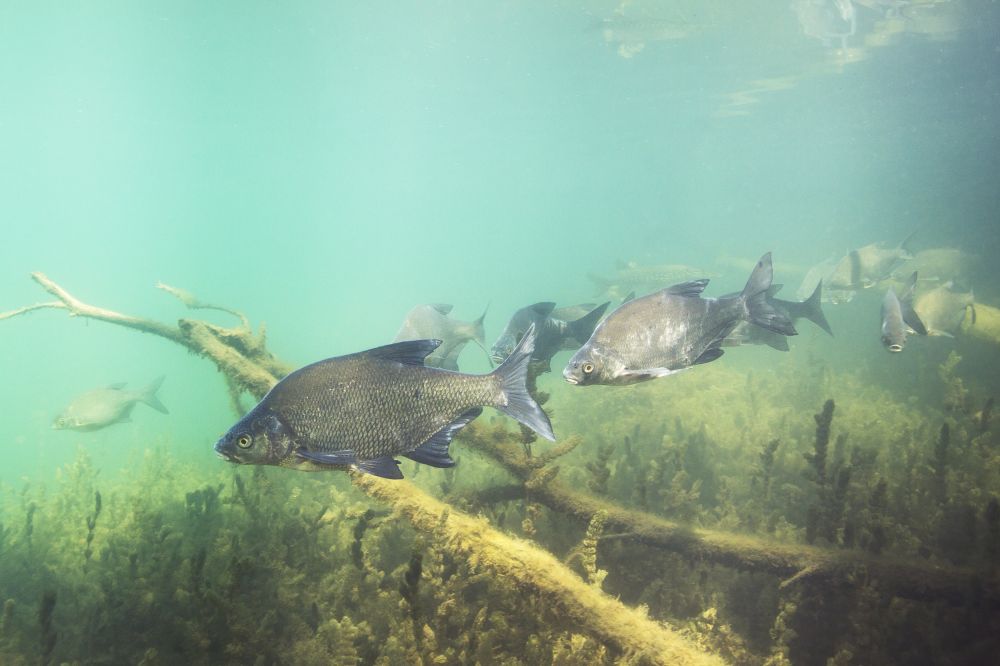
The Bronze bream belongs to the Cyprinidae Family. The current catch size varies between 30 and 50 cm, for a weight of 0.5 and 2.5 kg. Some individuals can reach a maximum height of 80 cm for a weight of 7 kg. It lives between 20 and 25 years. It reproduces between April and June and lay 100,000 to 300,000 eggs. The Bronze Bream can be fished all year round in 2nd category streams and is not hard to catch with the right bait. In Europe, there are 2 or 3 types of bream, 5 species and 2 subspecies. The Bronze bream has a very high and strong body flattened laterally. The bushy back, especially in older individuals, is characteristic of this fish. Its body is covered with large scales and mucus. The Bronze bream has a fairly small eye compared to the size of the muzzle. The mouth is small, oblique, barbless and protractile. The upper jaw protrudes beyond the lower jaw. Teeth are subject to seasonal replacement. The anal fin is very long and has 23-30 soft rays. On the other hand, the dorsal fin is short and inserted behind the pelvic fins. The caudal fin is very indented with the lower lobe longer than the upper lobe.
The Bronze Bream is a famous fish you can catch in Pinckney.The Atlantic salmon
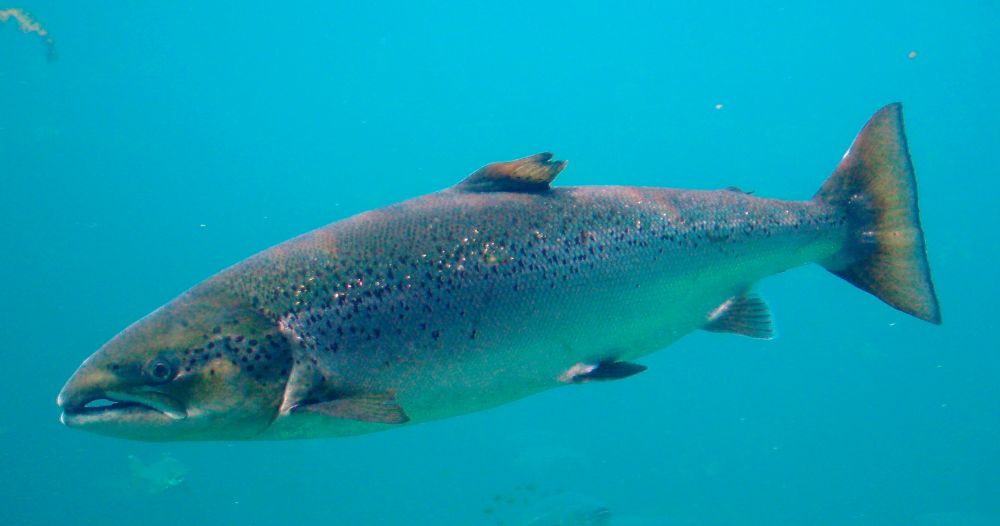
The Atlantic salmon belongs to the Salmonidae family. Atlantic salmon can measure up to 1.50 m in length and weigh up to 36 kg. The average longevity of Atlantic salmon is estimated at 10 years. It breeds from October to November. The female lays 1500 to 1800 eggs per kg of weight. It can be fished all year round. Atlantic salmon have an elongated and slender body. The anal fin has eight to eleven rays. The caudal is large, concave in adults and forked in young people. The head is small and flattened on top. The mouth is large (split to the posterior edge of the eye) and has strong teeth on the jaws, tongue and palate. The scales are large and visible. The lateral line is straight. Large black dots on a light background form X on the head, back and dorsal fin. The color varies from blue to blue-grey on the back, it is silvery on the sides. It varies during the spawning season, with adults turning bronze to dark brown. They lose their silvery livery when they enter fresh water. Males are marked with red dots on the sides. The young are marked with seven to eleven vertical fingerprints that they will lose when they enter the sea. As spawning approaches, the male's head will change: it will elongate, the lower jaw will develop and bend to form a hook (male "becard").
The Atlantic salmon is a famous fish you can catch in Pinckney.The Pacific Lamprey
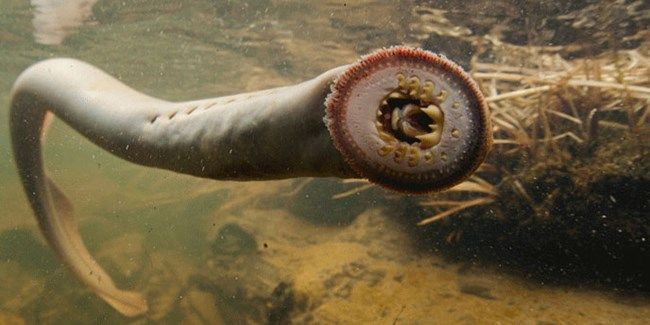
The Pacific Lamprey belongs to the Petromyzontidae family. The adult size of the pacific lamprey can reach 80 cm. It can live up to 5 years. The spawning period depends on the location. It can be caught between July and September when it enters freshwater. The Pacific Lamprey differs from other lamprey species in that it has three large, sharp anterior teeth located on the supraoral bar. Like all lampreys, they have seven breathable pores on each side of their bodies and a large suction disc that acts as a mouth. They are dark blue at the top and silver or white at the bottom. During the breeding season, Pacific lampreys turn reddish brown and the appearance of the sexes begins to differentiate as a pseudo-anal fin develops on the female. Their larvae are difficult to distinguish from those of other lamprey species.
The Pacific Lamprey is a famous fish you can catch in Pinckney.Our fishing forecast of Pinckney indicates the best time to go fishing in this city.
Our fishing forecast of Pinckney indicates the best time to go fishing in this city.
Our fishing forecast of Pinckney indicates the best time to go fishing in this city.
